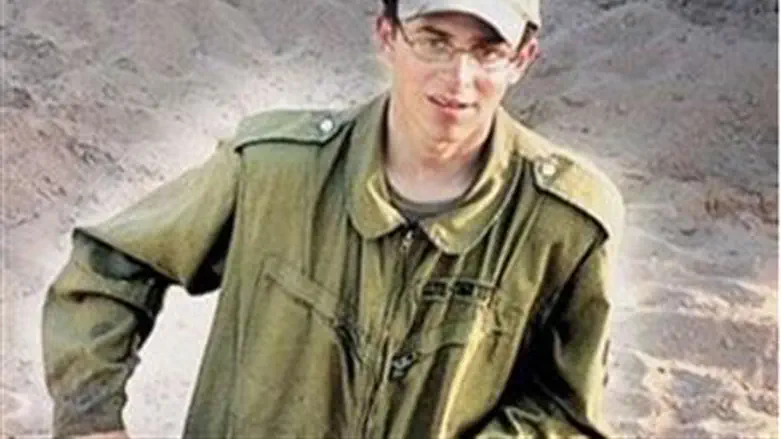
Five years have passed since the savage terrorist organization Hamas took Israeli soldier Sergeant Gilad Shalit captive in a raid on an IDF position near Gaza. Two of Shalit’s fellow soldiers were killed in that raid.
Since then, the terrorist group has held Shalit incommunicado at an unknown location, as a bargaining chip for the release of terrorists held in Israeli jails and as a means of getting attention and conducting endless psychological warfare against the Israeli people.
Israelis are notoriously sensitive to the welfare of their captive soldiers and citizens. In the state’s early decades, the government refused as a matter of principle to negotiate with terrorists and preferred to conduct military raids to release hostages. The most famous of these was the Entebbe raid, in which Prime Minister Binyamin Netanyahu’s brother Yoni was killed.
The Israeli position has softened since the mid-1980s, however, and over the years Israel has proven its willingness to pay for the release of hostages by releasing hundreds of terrorists. In terms of internal Israeli culture, the virile soldierly ethos of the past is derided as "machoism" by the carriers of Political Correctness, who peddle a more "sensitive" and "nurturing" mindset.
While Israel formally does not talk to Hamas, negotiations for Shalit’s release have been going on through intermediaries for years. Every few weeks, the media prominently reports “progress” in talks for his release, and these reports are then denied. The result is an emotional roller-coaster for the public.
In Jerusalem, Shalit's parents, his brother and his brother's girlfriend chained themselves to one another and to a railing on the side of a small street near the prime minister’s residence.
"We are marking five years' anniversary of Gilad's captivity in the Hamas hands and we, as you can see, are also a family in captivity for five years," said Shalit's father Noam in Jerusalem Sunday.
In Israel, some 400 activists gathered Sunday at Kerem Shalom, the border crossing where Shalit was captured on June 25, 2006.
Over the years, Shalit’s family members have been joined by a well-oiled public relations machine which usually calls for a surrender to Hamas’s demands. To a lesser degree, the Shalit campaign places pressure on Hamas or calls for a toughening of the closure on Gaza. The Israeli press cooperates fully with the PR moves.
On the fifth anniversary, Israel's largest news website, Ynet, is broadcasting a live stream from a mock jail cell in which media celebrities, former POWs and others spend an hour each, talking to the cameras and expressing their thoughts and emotions. The Shalit family has announced an SMS petition campaign for their son's release. Previous campaigns have included a march from the Shalits' home in Galilee to Jerusalem, protests by youths, an "army" of cardboard cutouts in Schalit's image outide the Prime Minister's Office and the disruption of the main Independence Day ceremony in Jerusalem.
The leaders, activists and experts opposed to the release of Shalit at the price demanded by Hamas say that such a deal would strengthen Hamas and lead to the deaths of many innocent Israelis as a result.